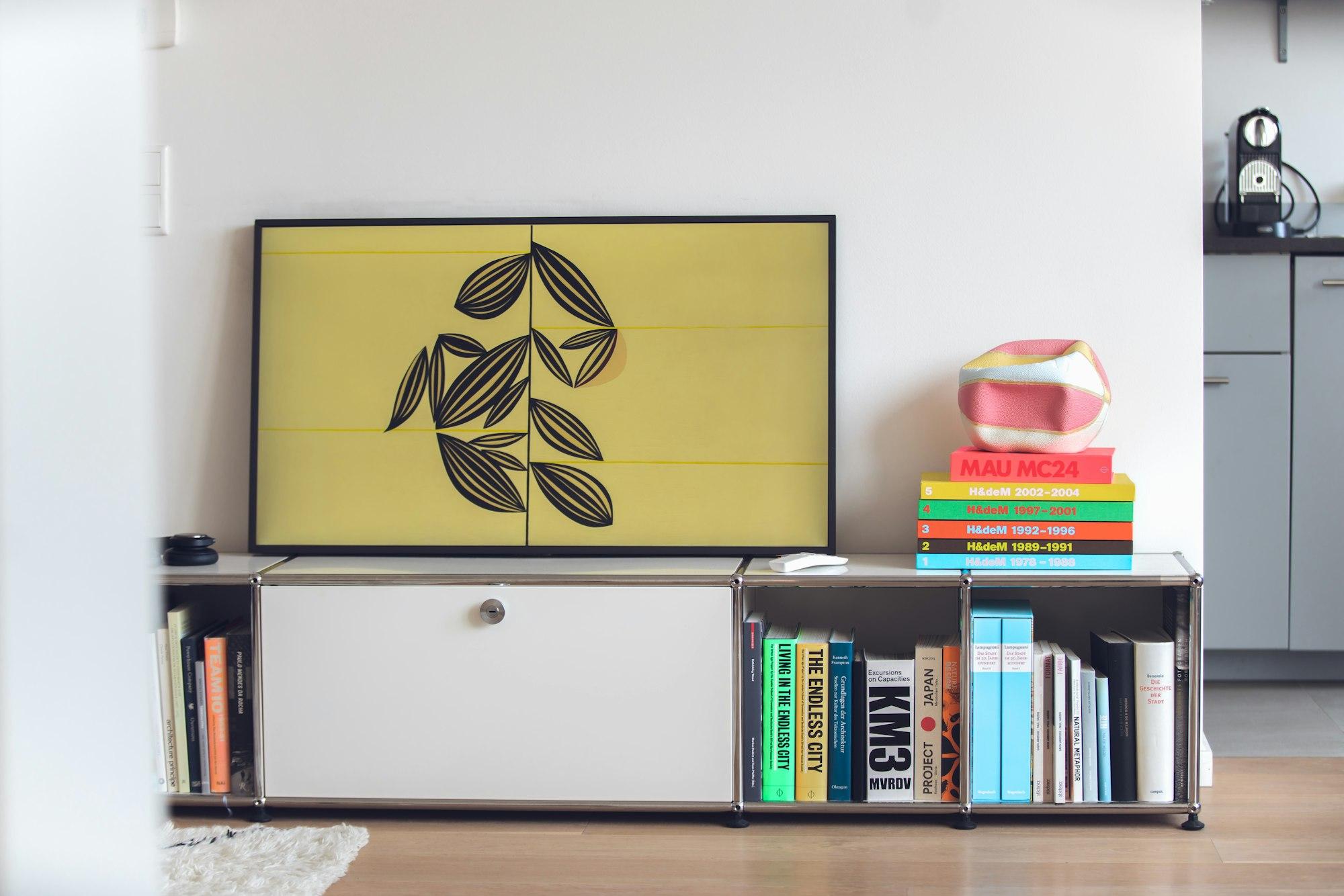Is Modular Furniture Right for You?
Modular furniture offers versatile, customizable solutions ideal for dynamic spaces and evolving needs, but its higher initial cost and assembly requirements may not suit every budget or style preference.

Photo by Susanne Neumair
In the ever-evolving world of interior design, modular furniture has emerged as a versatile and innovative solution for those seeking flexibility and style in their living spaces. But is it the right choice for you? Let's delve into the pros and cons of customizable furniture to help you make an informed decision.
Understanding Modular Furniture
Modular furniture is designed with adaptability in mind, allowing you to configure and reconfigure pieces to suit your space and needs. This type of furniture is particularly appealing to those who value personalization and functionality. The concept of modularity in furniture design is not just a trend; it represents a shift in how we think about our living environments. As lifestyles change and evolve, so too do our needs for furniture that can keep pace with those changes. This adaptability is especially important in urban settings where space is often at a premium, and the ability to maximize utility without sacrificing style is paramount.
What Makes Modular Furniture Unique?
Unlike traditional furniture, modular pieces can be rearranged to create different layouts. This flexibility is ideal for people who frequently move or enjoy changing their home decor. The ability to add or remove modules also means you can adjust your furniture as your needs evolve. Furthermore, modular furniture often features a minimalist design, making it a popular choice for modern and contemporary interiors. Its clean lines and simple forms can complement a variety of decor styles, from industrial to Scandinavian. The uniqueness of modular furniture lies not only in its physical structure but also in the way it encourages creativity and personal expression. By allowing users to mix and match components, modular furniture transforms the act of furnishing a home into a dynamic and engaging process.
Types of Modular Furniture
There are several types of modular furniture available, each catering to different needs and preferences. Some popular options include:
- Modular Sofas: These sofas can be configured in various shapes and sizes, making them perfect for both small apartments and large living rooms. They often come with additional features such as built-in storage or convertible sections that can transform into beds, enhancing their functionality.
- Modular Shelving: Adjustable shelving units allow you to customize the height and width of your storage space, ideal for organizing books, decor, and more. These units can be expanded or contracted based on your collection, making them a practical choice for avid readers or collectors.
- Modular Desks: Perfect for home offices, these desks can be expanded or reduced depending on your workspace requirements. Some designs even incorporate mobile components that can be easily moved around, allowing for a more fluid work environment.
- Modular Dining Sets: These sets can be adjusted to accommodate different numbers of guests, making them ideal for both intimate dinners and larger gatherings. The ability to add or remove chairs and tables can significantly enhance the dining experience.
- Modular Storage Solutions: From cabinets to bins, modular storage options can be tailored to fit any space, providing a stylish way to keep your home organized. These solutions often come with interchangeable parts, allowing you to create a system that works best for your specific needs.
The Advantages of Modular Furniture
Modular furniture offers numerous benefits that make it an attractive option for many homeowners. Here are some of the key advantages:
Flexibility and Customization
One of the most significant advantages of modular furniture is its flexibility. You can easily adapt your furniture to fit different spaces and purposes, ensuring it meets your specific needs. This customization allows you to create a unique living environment that reflects your personal style. Whether you're hosting a party or need a quiet space to work, modular furniture can be rearranged to accommodate your lifestyle. This adaptability is particularly beneficial for those living in small spaces, where maximizing every square inch is crucial. Moreover, the ability to change your furniture layout can also have a positive impact on your mood and productivity. A fresh arrangement can invigorate your space, making it feel new and exciting, which can be particularly beneficial in a home office setting where inspiration is key.
Cost-Effectiveness
While modular furniture can be an investment, it often proves cost-effective in the long run. The ability to add or remove modules means you can expand your furniture as needed, without having to purchase entirely new pieces. This scalability can save you money over time, especially if your living situation changes frequently. Additionally, modular furniture is typically designed with durability in mind, ensuring it withstands the test of time. This longevity further contributes to its cost-effectiveness, as you won't need to replace it as often as cheaper, less durable options. Furthermore, many manufacturers offer warranties on their modular products, providing peace of mind and further enhancing the value of your investment. When considering the overall cost, it's also worth noting that modular furniture can often be more environmentally friendly, as it reduces waste by allowing for repairs and upgrades rather than complete replacements.
The Drawbacks of Modular Furniture
Despite its many benefits, modular furniture may not be the perfect fit for everyone. Here are some potential drawbacks to consider:
Initial Cost
While modular furniture can be cost-effective in the long run, the initial investment can be higher than traditional furniture. This upfront cost may be a barrier for some, particularly those on a tight budget. However, it's important to weigh this initial expense against the long-term benefits and savings that modular furniture can provide. If you anticipate needing to frequently update or expand your furniture, the investment may be worthwhile. Additionally, many retailers offer financing options or payment plans that can help ease the burden of the initial cost, making it more accessible for a wider range of consumers. It's also advisable to consider the resale value of modular furniture, as its adaptability and modern appeal can make it a desirable option for future buyers.
Assembly and Maintenance
Modular furniture often requires assembly, which can be time-consuming and challenging for some. If you're not comfortable with DIY projects, you may need to hire a professional to assist with the setup, adding to the overall cost. Additionally, maintaining modular furniture can be more involved than traditional pieces. Regularly reconfiguring modules may lead to wear and tear, requiring occasional repairs or replacements to keep your furniture looking its best. It's also essential to follow the manufacturer's care instructions to ensure longevity, as improper maintenance can lead to damage that may not be covered under warranty. Furthermore, some modular pieces may require specific cleaning products or techniques to maintain their appearance, which can add another layer of complexity to ownership.
Is Modular Furniture Right for You?
Deciding whether modular furniture is the right choice for you depends on your lifestyle, budget, and personal preferences. Consider the following factors when making your decision:
Your Living Space
If you live in a small apartment or frequently move, modular furniture's flexibility and adaptability can be a significant advantage. The ability to reconfigure your furniture to fit different spaces can make your living environment more comfortable and functional. On the other hand, if you have a large, permanent home, traditional furniture may be more suitable, as you may not need the same level of adaptability. However, even in larger spaces, modular furniture can provide a unique opportunity to create distinct zones within an open floor plan, allowing for a more dynamic and engaging living experience. Additionally, consider the potential for future changes in your living situation; modular furniture can easily accommodate growing families or evolving personal tastes.
Your Budget
Consider your budget when deciding on modular furniture. While the initial cost may be higher, the long-term savings and benefits can make it a worthwhile investment. If you're on a tight budget, look for sales or consider purchasing second-hand modular pieces to reduce costs. Many retailers also offer modular furniture at various price points, allowing you to find options that fit your financial situation. Additionally, consider the potential for modular furniture to serve multiple purposes, which can reduce the need for additional purchases. For example, a modular sofa that converts into a bed can eliminate the need for a separate guest bed, further maximizing your investment.
Your Personal Style
Modular furniture's minimalist design may not appeal to everyone. If you prefer more ornate or traditional styles, you may find modular options lacking in character. However, if you appreciate clean lines and modern aesthetics, modular furniture can be an excellent choice. Many manufacturers are now offering customizable finishes and fabrics, allowing you to personalize your modular pieces to better align with your existing decor. This ability to tailor your furniture can help bridge the gap between modern modular designs and more traditional styles, creating a harmonious blend that reflects your unique taste. Additionally, consider how modular furniture can serve as a canvas for your creativity; by mixing and matching different modules, you can create a look that is entirely your own.
Environmental Considerations
In today's world, sustainability is a significant concern for many consumers. Modular furniture can be a more environmentally friendly option compared to traditional furniture. Because modular pieces are designed to be reconfigured and reused, they can help reduce waste and the need for new materials. Additionally, many manufacturers are now focusing on sustainable practices, using eco-friendly materials and production methods. When selecting modular furniture, look for options made from recycled or sustainably sourced materials, as well as those that are designed for longevity. This not only benefits the environment but can also enhance the overall quality and durability of your furniture.
Final Thoughts
Ultimately, the decision to invest in modular furniture comes down to your individual needs and preferences. By weighing the pros and cons, you can determine whether this versatile and customizable option is the right fit for your home. Whether you're drawn to its flexibility, cost-effectiveness, or modern design, modular furniture offers a unique solution for those seeking to create a personalized and functional living space. Consider your lifestyle, budget, and style preferences to make the best choice for your home. As you explore the world of modular furniture, remember that the right pieces can not only enhance your living environment but also reflect your personality and values, making your home a true reflection of who you are.
Quick facts
What does modular furniture mean?
Modular furniture consists of customizable pieces that can be rearranged and combined in various ways to suit different spaces and needs. It's designed for flexibility, allowing users to adapt the layout as their requirements change.
What is the difference between normal and modular furniture?
The main difference is flexibility. Normal furniture is static in design, while modular furniture offers adaptable pieces that can be configured in multiple ways. Modular furniture is ideal for those who want customizable options to fit changing spaces or needs.
Why is modular furniture so expensive?
Modular furniture tends to be more expensive due to its high-quality materials, design flexibility, and engineering. Its durability and customizability often justify the price, as it can adapt to various spaces and reduce the need for replacement furniture.
Is modular furniture durable?
Yes, modular furniture is generally durable, especially when made from high-quality materials. It's built to withstand reconfiguration and movement, making it a long-lasting option for those who frequently update their space layout.

Anirudh Atodaria
Software Engineer at Spoken
Anirudh is a software engineer at Spoken. He enjoys learning new things and solving complex problems. He takes pride in making others lives easier through innovative technology solutions. While he spends most of his time immersed in coding and tech, he tries to touch some grass occasionally.
Read more